
It’s midnight, and instead of brainstorming new product ideas or marketing strategies, you’re buried under a pile of customer orders. Your spare bedroom has become a makeshift warehouse, packing peanuts and tape are everywhere, and you’re still printing shipping labels. Sound familiar? You’re not alone – many start-up founders reach a point where running the day-to-day fulfillment feels like an extreme sport. As exciting as a surge in orders can be, it often comes with a side of chaos. In fact, running a small eCommerce brand can feel like a “chaotic mix of excitement, stress, and way too much packing tape,” as one writer cleverly put it (ciowomenmagazine.com). The good news is that this logistical nightmare can transform into a smooth operation with the right help. That’s where a 3PL (third-party logistics provider) comes into play.
Jump right in: How a 3PL Can Help Your Start-Up Succeed
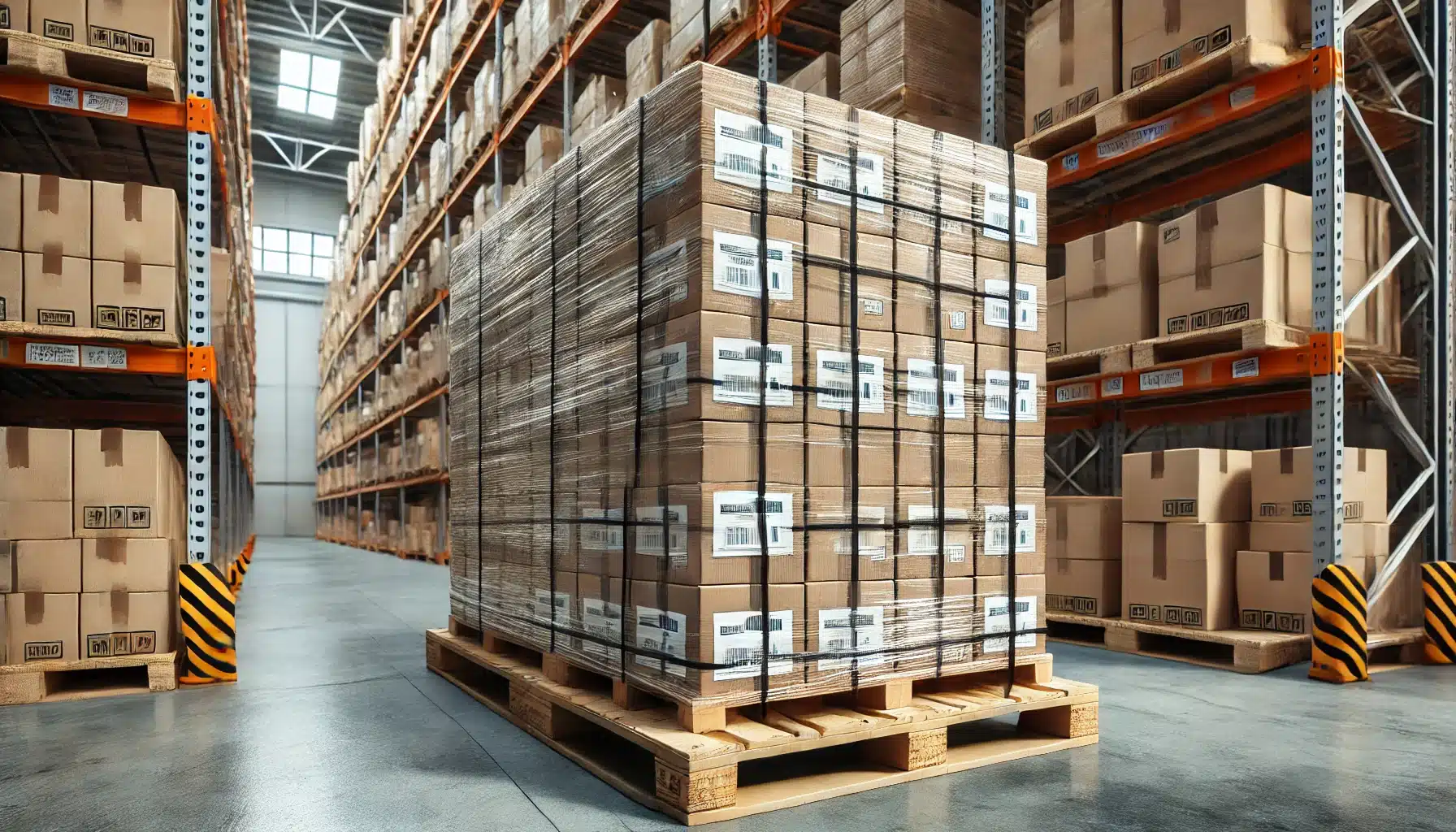
What is a 3PL, anyway? In simple terms, a 3PL is a company that handles logistics for other businesses. This means they store your inventory, pick and pack orders, ship them out to your customers, and even manage returns. Partnering with a fulfillment service can feel like adding an expert extension to your team – one that lives and breathes logistics so you don’t have to. In the next sections, we’ll dive into the common challenges (the “growing pains”) eCommerce start-ups face and how outsourcing fulfillment to a 3PL can not only relieve those headaches but actually give you a competitive edge.
The Growing Pains of Start-Up eCommerce Sellers
Every eCommerce entrepreneur starts with a passion – a great product, a niche idea, a dream of online success. But as orders begin to roll in, so do a host of operational challenges.

Let’s unpack some of the most common pain points that small online sellers encounter:
Inventory Management Chaos:
Keeping track of stock can become a full-time job in itself. One day you’re overselling an item because you lost count, the next day you’re buried in unsold inventory of another SKU. Managing inventory across multiple sales channels (your website, Amazon, eBay, etc.) multiplies the complexity. Without a robust system, you risk stockouts (losing sales when you run out of product) or overstock (tying up cash in excess inventory). Disorganized storage – whether it’s boxes in your garage or a tiny storage unit – slows down your ability to find and ship products quickly, turning order fulfillment into a scavenger hunt.
Sky-High Shipping Costs:
Shipping is never free for the seller. As a start-up, you likely pay retail shipping rates because you don’t have bulk volume discounts with carriers. Those costs add up fast, eating into your profit margin. And then there’s the time spent comparison-shopping rates or standing in line at the post office. If you’ve ever been shocked by how much it costs to send a box across the country, you know this pain. Plus, customers today expect fast, affordable (if not free) delivery – competing with the likes of Amazon Prime’s two-day shipping is daunting when you’re small. Hidden shipping costs or unexpected surcharges (fuel surcharges, anyone?) can also throw off your budget.
“Many online sellers experience seasonal sales spikes and lulls… One of the biggest benefits to outsourcing…is transforming those fixed costs into a variable model”
Scalability and Seasonal Spikes:
A lovely problem to have – until it isn’t. Maybe you got featured in a popular blog or your product went viral on TikTok. Suddenly, a trickle of orders becomes a flood. Can your current setup handle a 5x or 10x increase in order volume? For many start-ups, the answer is no. Limited space, limited hands on deck, and manual processes mean you struggle to keep up with growing demand. Seasonal spikes (like the holiday rush) create another rollercoaster: you might be super busy in Q4 and dead slow in January. During peaks, you’re scrambling to ship on time; during lulls, you’re paying for warehouse space or staff that you don’t fully utilize. This imbalance is hard to manage – you either risk late shipments and upset customers, or you over-invest in capacity that sits idle in slow periods.
Order Accuracy and Speed:
When you’re fulfilling orders yourself after a long day, mistakes can happen. Maybe the blue variant was sent instead of red, or two items were accidentally left out of a five-item order. Each error means an unhappy customer and additional costs to reship the correct item (plus handling a return). Accuracy is crucial – studies show top fulfillment providers aim for at least 99% order accuracy. Small in-house operations often struggle to reach those levels, especially as order counts increase. On top of accuracy, speed matters too. Customers expect quick processing; if it takes you several days to pack and ship an order because you’re swamped, customer satisfaction can dip. Late or wrong orders can lead to negative reviews that hurt your brand’s reputation.
Handling Returns and Exchanges:
Returns are an inevitable part of eCommerce, especially in certain categories like apparel. In fact, the average return rate for online orders is around 16–17%, and some reports put it higher (20-30% on average, versus under 10% in brick-and-mortar). For a small business, each return is a manual hassle: you have to receive the item, inspect it, process a refund or exchange, update inventory, and get that item back into stock if it’s resellable. This can be very time-consuming. Worse, if returns aren’t handled promptly and correctly, you risk losing that customer’s future business. Managing returns requires a system – RMAs (return merchandise authorizations), return labels, quality checks – which many start-ups don’t have bandwidth to optimize.
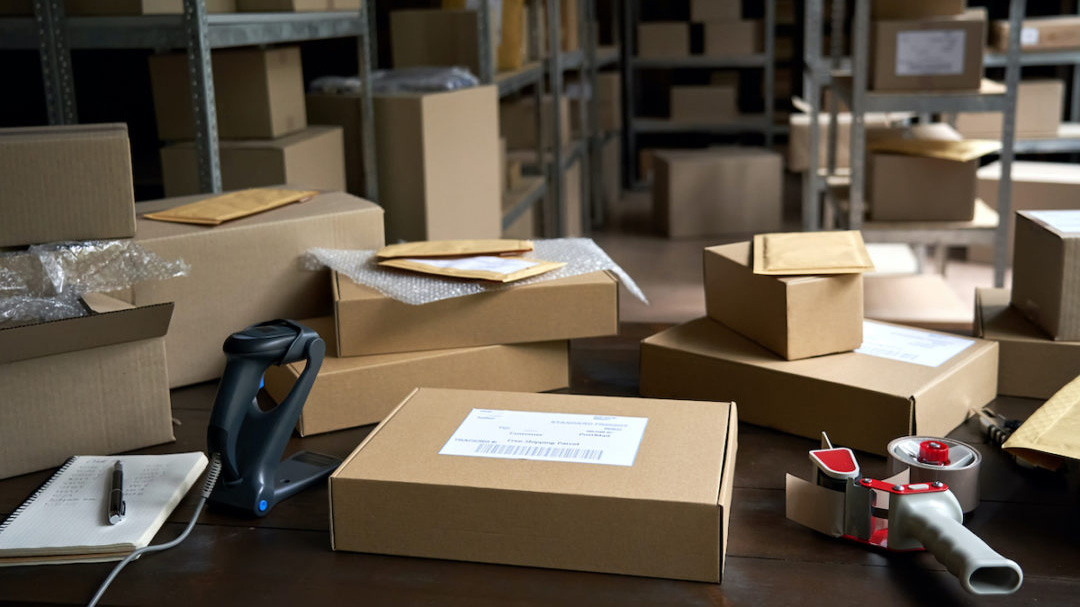
International Shipping Woes:
The internet gives you a global customer base, which is amazing – until you try to ship a package to Europe or Asia from your home base. International shipping involves a maze of customs forms, duty calculations, longer transit times, and higher shipping costs. It’s complex and easy to get wrong. Miss a customs declaration and your package might get stuck in customs for weeks or returned to you. Plus, navigating international carrier options (postal service vs. private carriers) and tracking in other countries can be frustrating. Regulations and international shipping rules add another layer of complication. Many start-ups either turn away international orders (missing out on sales) or roll the dice and occasionally face angry overseas customers due to shipping snafus.
All these challenges share one thing in common: they pull you, the business owner, away from growing your business. Instead of focusing on marketing, product development, or customer engagement, you’re bogged down in operational details. In fact, surveys show that a majority of small business owners feel overwhelmed by wearing too many hats, and over half report spending more time working in the business than on the business. If you’re spending your evenings packing orders rather than planning your next product launch, it might be time for a change. Let’s explore how partnering with a fulfillment service (a 3PL) can solve these pain points and give you back the freedom to focus on what you do best.
Managing Fulfillment doesn’t have to be a hassle.
Partnering with a 3PL like eFulfillment Service means you can focus on growing your business while we handle the details. Request a Free Quote Today!
How a 3PL Can Solve These Issues
Handing over your fulfillment tasks to a third-party logistics provider can feel like a big step, but it often comes as a huge relief. A good 3PL becomes an extension of your business – one dedicated solely to getting orders to your customers efficiently and accurately.
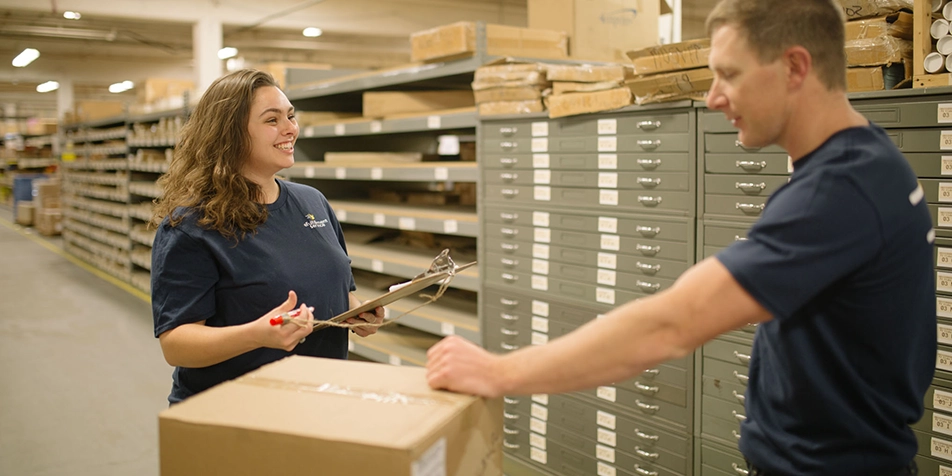
Here’s a breakdown of how a fulfillment service can tackle each of the pain points we discussed:
Taming the Inventory Management Chaos
A 3PL brings professional inventory management systems to the table. Instead of manually updating spreadsheets or guessing how much stock you have left, you get access to real-time inventory tracking through the 3PL’s software dashboard. For example, eFulfillment Service offers a proprietary web portal for inventory and order tracking, and it integrates with over 40 shopping carts and marketplaces. This means whether you sell on Shopify, Amazon, Etsy, or your own website, all your orders funnel into one system at the fulfillment center. The 3PL will store your products in their warehouse, organized and catalogued properly (no more mystery boxes in the garage).
With a fulfillment center’s organized warehousing, each SKU has a designated bin or pallet location, barcodes, and an established picking system. When an order comes in, the system knows exactly where the item is located and directs a warehouse picker to retrieve it. This dramatically reduces the chance of lost or misplaced stock. It also gives you visibility: you can usually log into your 3PL’s portal and see how many units of each product are on hand and when you might need to reorder. No more surprises – you can set automatic alerts when stock runs low. By centralizing inventory management with a 3PL, you avoid overselling products or keeping dead stock. Everything is tracked meticulously, and often 3PLs will even help with forecasting demand (some offer inventory planning services or reports to analyze your sales velocity).
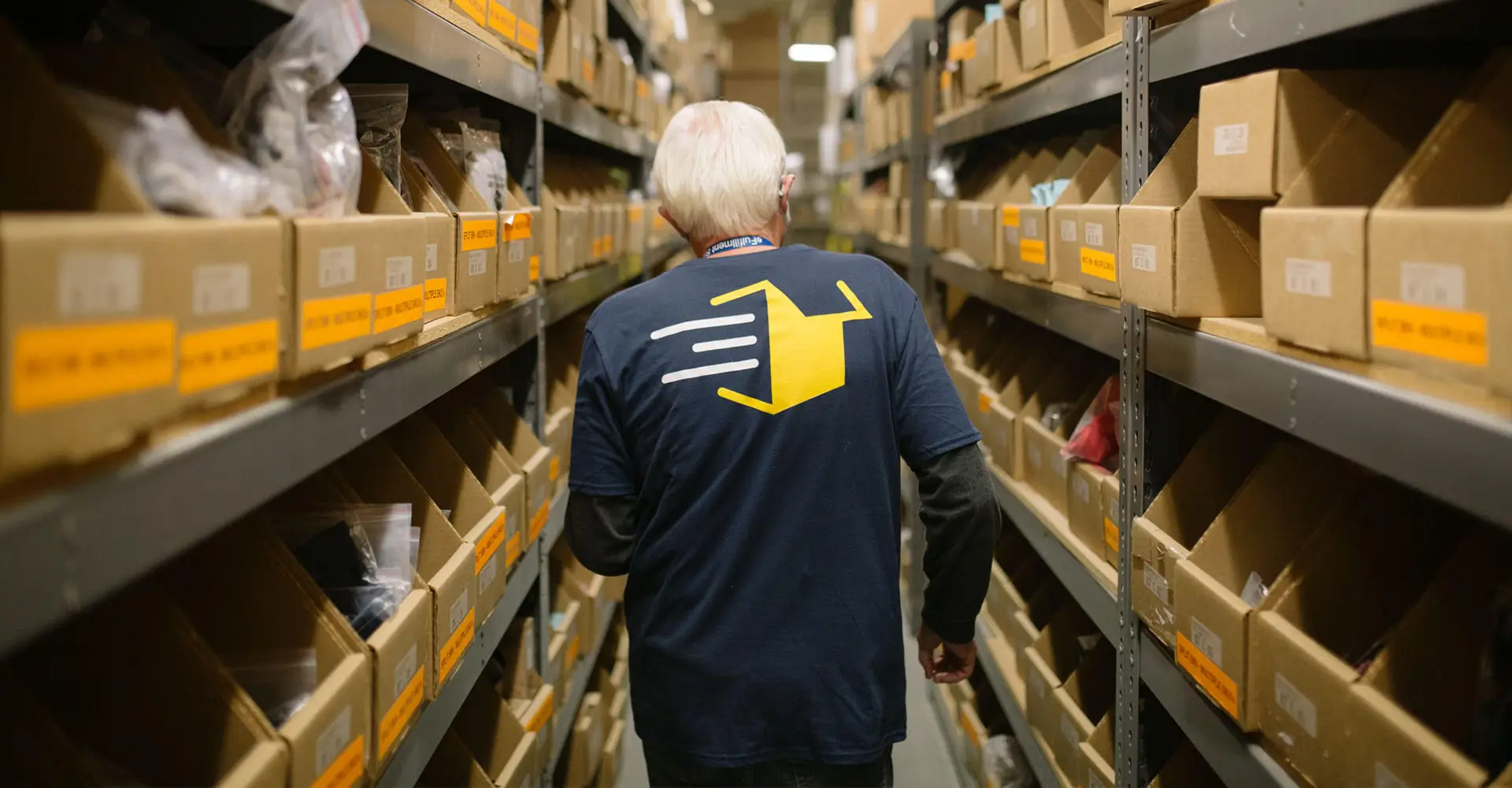
Additionally, a 3PL’s warehouse is built for efficiency. They have optimized layouts, shelving, and equipment (like forklifts or conveyor systems) to move goods quickly. The environment is designed to streamline fulfillment, which your cramped home office is not. Ultimately, partnering with a 3PL turns inventory management from a frantic guessing game into a well-oiled machine. You’ll know your products are securely stored and accounted for, which grants serious peace of mind.
Lower Your Costs with Smarter Fulfillment.
Partner with eFulfillment Service to move inventory faster and free up cash flow. We help Start-Ups optimize operations so products don’t sit on shelves. Request a Free Quote today!
Slashing Shipping Costs and Transit Times
One major perk of using a fulfillment service is access to discounted shipping rates. Because 3PLs ship huge volumes with carriers, they can negotiate bulk deals that an individual small business could never get. Those savings are often passed on to you. For instance, outsourcing your fulfillment lets you “take advantage of shipping discounts offered by fulfillment companies, discounts that many sellers could not have otherwise gained on their own.”. It’s not uncommon for a 3PL to reduce your shipping costs by leveraging their volume – some sources suggest savings in the range of 10-30% depending on your shipments. Over time, those savings significantly boost your margins.

Beyond cost, 3PLs also optimize transit times. Many 3PLs operate multiple warehouses across regions (e.g., east coast, west coast) so they can store your inventory closer to your customers and deliver faster. If most of your customers are in California and you’re shipping from Michigan, delivery might take 5 days via ground. But a 3PL with a west coast center could cut that to 2 days. Now, eFulfillment Service specifically uses a single centrally located warehouse in Michigan for most orders, which is great for reaching midwestern and east coast customers quickly, though it might mean slightly longer delivery times to the west coast. Competitors like ShipBob boast a network of fulfillment centers nationwide, which can be ideal for two-day delivery coverage, but keep in mind that as a start-up, managing inventory across multiple warehouses can introduce complexity you may not need initially. eFulfillment’s model keeps it simple until you’re ready to expand further.
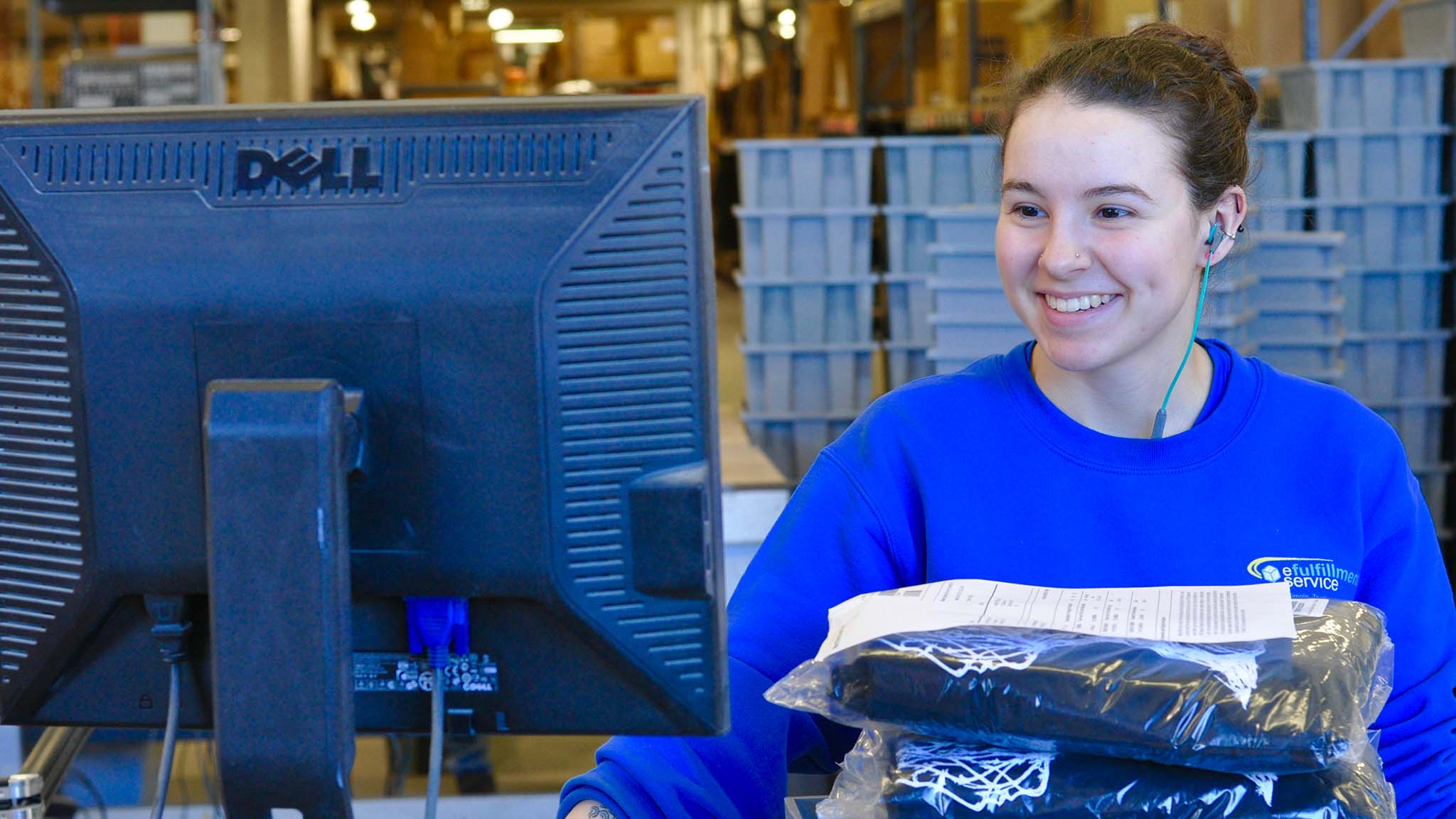
Speed isn’t just about distance – it’s also about how quickly orders get out the door. 3PLs have dedicated staff working round the clock (often multiple shifts) to ensure orders are picked, packed, and shipped within tight SLAs (service-level agreements). Many aim to ship out all orders received by a certain cutoff the same day or within 24 hours. This means your customer’s order doesn’t sit in a queue waiting for you to have time after your day job – it’s already on its way. Faster shipping leads to happier customers and fewer “Where’s my order?” support emails for you.
Lastly, an often overlooked benefit is that 3PLs can rate-shop among carriers. They might have software that automatically picks the cheapest or fastest carrier for each package based on the destination and weight. So one order might ship USPS Priority Mail, another FedEx Ground, another DHL, all without you manually comparing rates. The result: each order ships by the optimal method, saving money and time.
Seamless Scalability – Flexing with Your Growth
Perhaps one of the biggest advantages of a 3PL for a start-up is the ability to scale up (or down) effortlessly. When you fulfill in-house, you have fixed overhead – space, maybe some staff, packaging supplies, etc., that are there whether you have 10 orders or 1000 orders this week. This can get particularly problematic with seasonal swings:
“Many online sellers experience seasonal sales spikes and lulls… One of the biggest benefits to outsourcing…is transforming those fixed costs into a variable model” – eFulfilllment Service
In other words, with a 3PL you typically pay per order or per item shipped. If you have no orders today, you’re not paying for idle packers or an empty warehouse; if you have a ton of orders tomorrow, the 3PL has the capacity to handle it and you pay a bit more only because you’re shipping more. This variable cost structure means you maintain a steady cost-per-order and don’t have to worry about scaling infrastructure.

When your business suddenly spikes, a 3PL can flex. Need more space for inventory? They have it. Sudden surge in orders? They have a trained team that can add extra shifts or reallocate labor to ensure timely fulfillment. You won’t need to frantically hire temporary help or beg friends and family to form a late-night packing assembly line. Conversely, during slower periods, you’re not stuck with wasted resources – you simply pay less because you’re shipping less. This elasticity is incredibly liberating for a start-up. It essentially de-risks growth: you can pursue big sales opportunities or promotions without fear of “How will I handle fulfillment?” The 3PL scales with you.
Additionally, 3PLs are experienced in handling growth logistics. As you grow, they can offer insights on things like when to split inventory into multiple warehouses, or how to optimize packaging to save on shipping, or when to use freight shipping for bulk distribution. They’ve seen other companies grow from garage operations to thriving brands, so they serve as advisors in a sense. With a fulfillment partner, you’re not alone in figuring out how to operationally manage your growth – you have a guide who’s been down that road.
Struggling with High Inventory Costs?
Our 3PL services streamline your fulfillment process and boost profitability. Get a Free Quote and start improving your cash flow today!
Quality control is a core focus of professional fulfillment centers. A reputable 3PL will have stringent processes to minimize errors – barcoded inventory, order scanners, double-checking procedures, and trained staff who specialize in picking and packing correctly. For example, eFulfillment Service has a 99.9% order accuracy rate, meaning virtually all orders are shipped without errors. That level of accuracy is hard to achieve consistently when you’re multitasking many roles as a small business owner. Third-party logistics providers often measure accuracy as a key KPI (Key Performance Indicator), and many even offer accuracy guarantees because they know mistakes hurt everyone. Red Stag Fulfillment, for instance, is known for a nearly 100% accuracy and even offers financial guarantees if they make an error. While not every 3PL has a formal guarantee, the best ones pride themselves on error rates well below 1%. As ArcherPoint notes, “An order accuracy of 99.9% is typical in 3PL contracts,” as these companies understand that accurate fulfillment maintains customer satisfaction
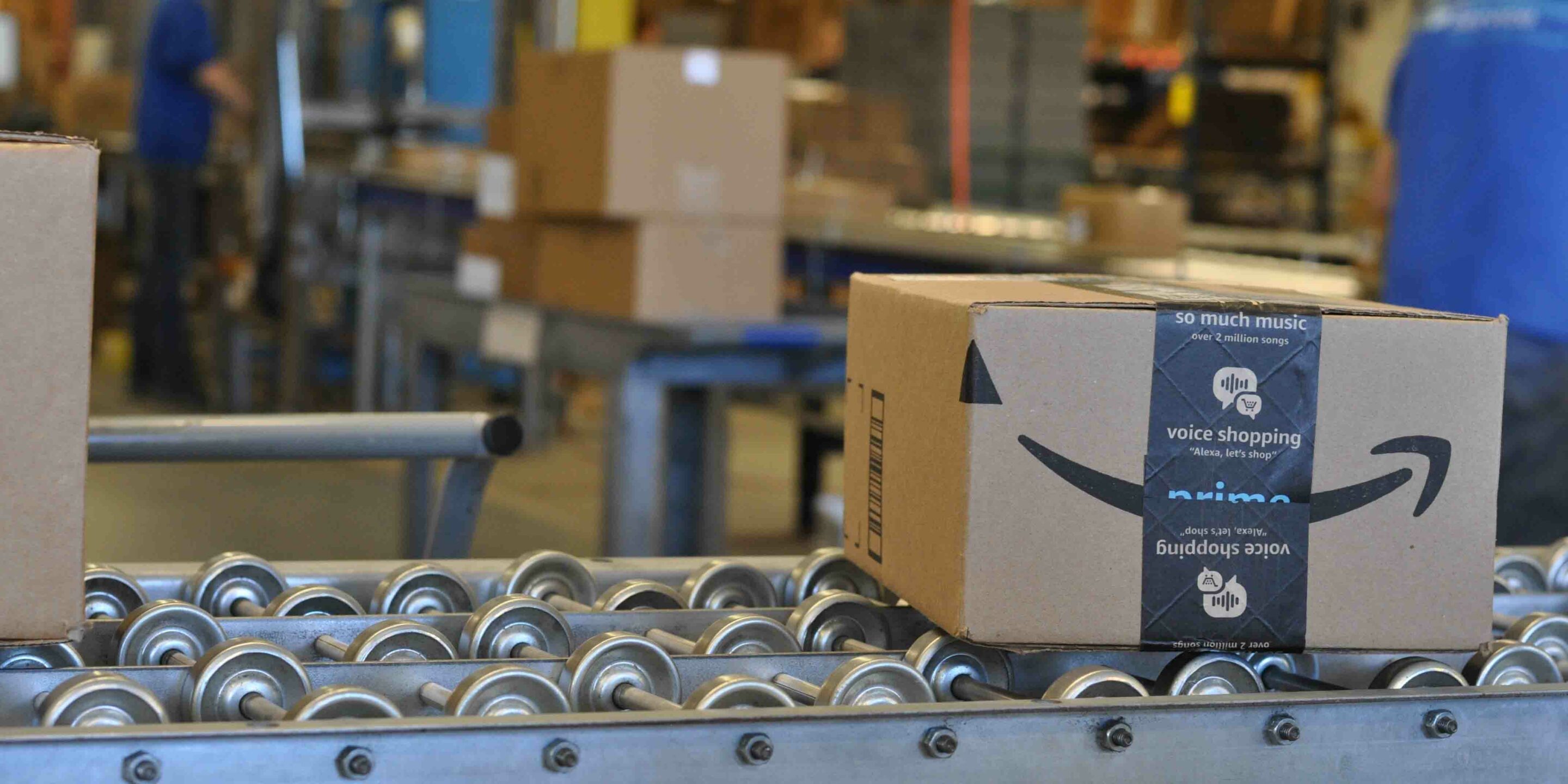
Hassle-Free Returns Management
Processing returns is a headache that a 3PL can gladly take off your plate. Most fulfillment providers offer returns handling services: when a customer wants to return something, you can direct them to send it back to the 3PL’s warehouse instead of to your home or office. The 3PL will receive the package, inspect the item’s condition, restock it into inventory if it’s resellable, or flag it if it’s damaged/unsellable according to your instructions. They’ll update the inventory levels in the system accordingly. Some even go the extra mile to help process the refund or generate reports on why items were returned (e.g., too small, defective, etc., if that info is provided).
By outsourcing returns, you turn a potentially messy task into a streamlined process. eFulfillment Service, for example, has a dedicated returns management service. They handle the entire process from start to finish:
“receipt, inspection, and restocking of returned items, ensuring your inventory is always up-to-date.”
So if a customer returns a shirt for a different size, eFulfillment can process that and have the new size shipped out (if you set up exchanges) or have the item back on the shelf ready for the next order, without you lifting a finger. They essentially act as your reverse logistics department.
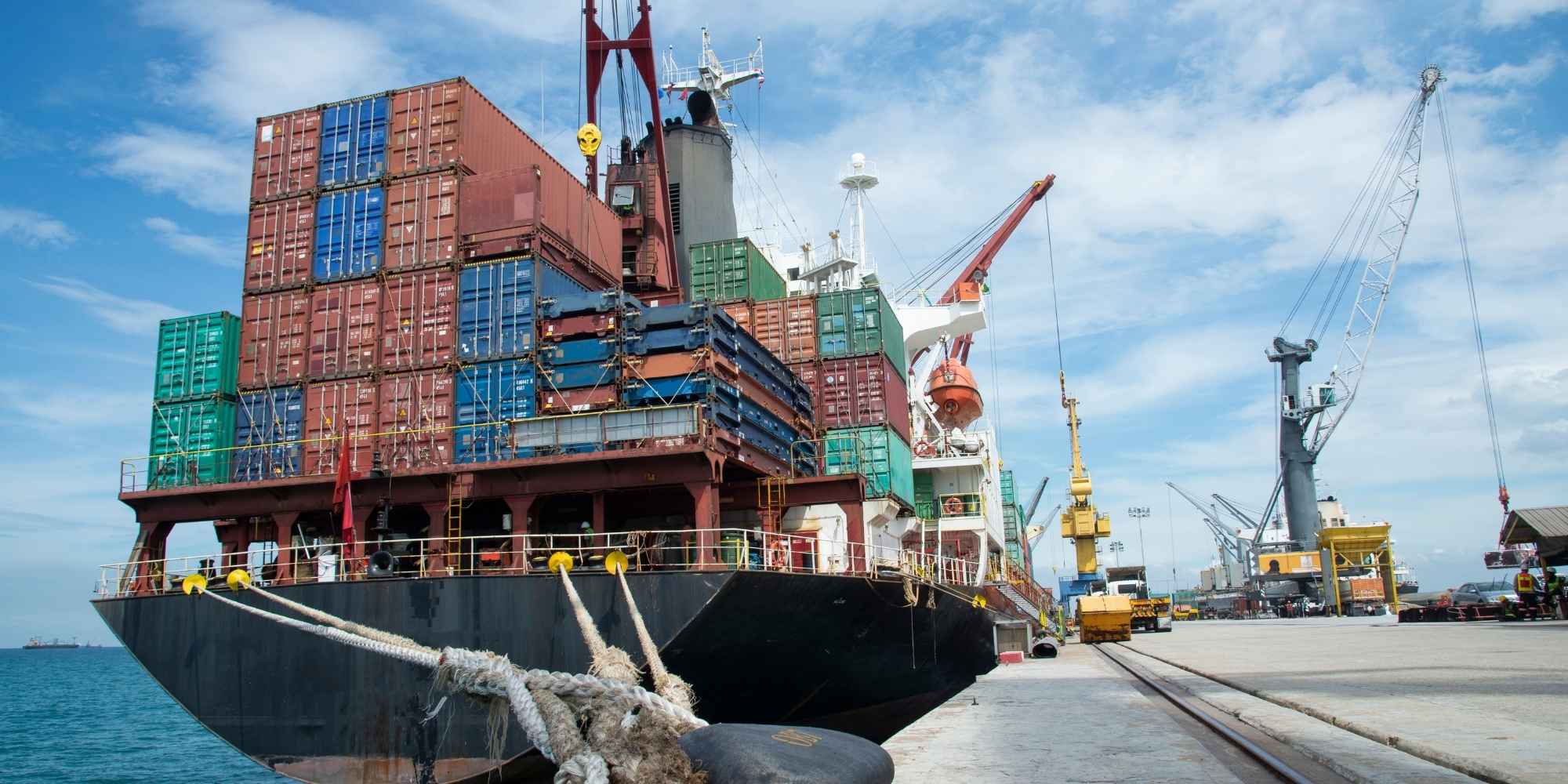
Navigating International Shipping with Ease
For a small seller, sending orders overseas can feel intimidating. A 3PL can make international shipping almost as easy as domestic. Many 3PLs are well-versed in global logistics: they fill out customs paperwork electronically, know the tariff codes, and can even help calculate duties and taxes. They also likely have partnerships with international carriers or consolidators. For example, eFulfillment Service ships worldwide from their facility and works with carriers like FedEx and USPS for international shipments. This means when you get an order from, say, Canada or the UK, the 3PL already has a process to quickly generate the required customs labels and get the package on its way with the proper service.
Bonus: Time and Focus – The Invisible Benefit
It’s worth highlighting an overarching benefit that goes beyond each individual task: outsourcing fulfillment gives you back your time and mental energy. All those hours spent organizing inventory, driving to the post office, handling returns, or troubleshooting shipping issues can be reallocated to strategic activities that actually grow your business.

“Freeing up resources allows you to focus on the core business, which is increasing the sales of your products.”
Imagine what you could do with an extra 10, 20, or 30 hours a week that you currently pour into fulfillment tasks. You could design new products, improve your website, run marketing campaigns, or simply take a breather (and avoid burnout).
By solving your pain points, a 3PL not only improves operations but also frees you up to be an entrepreneur again, not just a shipping clerk. This shift from working in the business to working on the business can be the difference between a plateaued small shop and a growing brand. Many small business owners find that once they outsource fulfillment, they have the capacity to scale sales because they’re not afraid of being overwhelmed by orders – the infrastructure is in place to handle it. In fact, fulfillment should be seen as a competitive advantage, not just a chore. Partnering with a 3PL can directly give you an edge through cost savings, faster shipping, and reliability, and indirectly by freeing you to sharpen your marketing and product offering.
Why Choose eFulfillment Service?
With numerous 3PL providers like ShipBob, Red Stag Fulfillment, ShipMonk, and ShipHero, why opt for eFulfillment Service (eFS)?
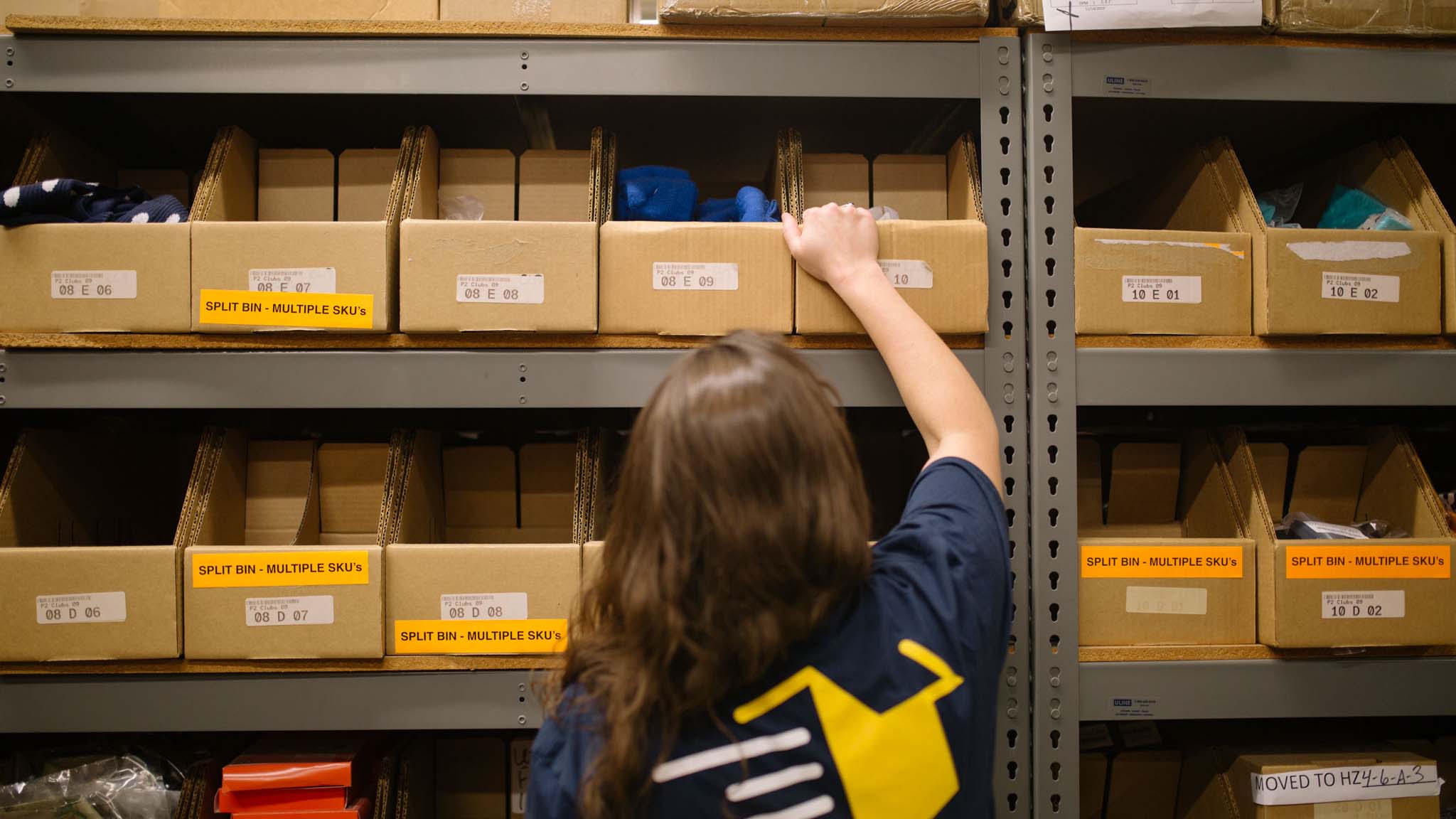
Here’s what sets eFS apart, especially for start-up and small eCommerce businesses:
Flexible Terms, No Minimums
Unlike other providers, eFS doesn’t require minimum order volumes or monthly spend. No long-term contracts mean you have complete flexibility—ideal for start-ups whose order volumes vary month-to-month.
Transparent, Affordable Pricing
eFS offers straightforward, transparent pricing without hidden fees, setup costs, or unexpected charges. Storage rates are competitive, with favorable terms that help control your costs as you grow.
Experience and Reliability
A family-owned business since 2001, eFS is trusted for its stability and proven track record. Decades of experience mean fewer fulfillment errors and reliable, consistent service for your brand.
Personalized Support
You receive dedicated account support and personalized service, including special requests like kitting or custom packaging inserts. Unlike larger providers, eFS prioritizes a responsive, human touch.
Comprehensive Services
eFS provides more than just packing and shipping—they offer kitting, FBA prep, retail fulfillment, and robust returns management. This one-stop approach makes scaling your operations simple.
Multi-Channel Integration
eFS integrates seamlessly with over 40 platforms including Shopify, Amazon, Etsy, and eBay, simplifying your multi-channel selling. Their reliable, continuously improved technology provides real-time inventory syncing and detailed analytics.
Ideal for Growing Brands
Specifically designed to serve small to midsize businesses, eFS comfortably handles varying order volumes (from 50 to thousands per month), supporting your business growth without pressure or complexity.
Accuracy and Service Quality
With a 99.9% accuracy rate, eFS delivers consistently precise fulfillment. They combine efficiency with careful oversight, ensuring every order reflects positively on your brand.
Choosing eFulfillment Service means partnering with a reliable provider who understands your journey. Their flexible terms, transparent costs, and personalized service make logistics easy, so you can focus on growing your business.
Summary:
As a start-up eCommerce seller, it’s normal to hit that point where fulfillment becomes overwhelming. The key is recognizing that you don’t have to go it alone. Partnering with a 3PL like eFulfillment Service can transform your business operations: turning cluttered living-room warehouses into professional storage, slow and costly shipping into speedy discounted deliveries, and sleepless nights into newfound time to strategize and grow. We’ve discussed how a fulfillment service can solve the common pain points of inventory chaos, high shipping costs, scaling woes, accuracy issues, returns, and international shipping. The right 3PL doesn’t just save you headaches – it can save you money, improve your customer satisfaction, and unlock your capacity to scale.
Crucially, not all 3PLs are created equal. It’s important to find a partner that aligns with your needs. eFulfillment Service stands out as an ideal choice for start-ups and small businesses due to its no-minimum philosophy, transparent pricing, and decades of trusted experience helping sellers just like you. They offer the technology and logistics muscle of a big player, with the personal touch of a small business that actually cares. By debunking the misconceptions (no, outsourcing fulfillment is not “only for huge companies” or “giving up control” – it’s a smart way to level up your professionalism), you can approach this decision with confidence.
In the end, outsourcing fulfillment is about reclaiming your focus. It’s about ensuring that logistics – while incredibly important – happen reliably in the background, while you drive the business forward. Imagine being able to tell a customer, “Yes, we can handle that large order, no problem,” or launching a holiday sale without dreading the avalanche of packing. That’s the freedom a 3PL partnership can offer.
Take the Next Step: Stop Letting Inventory Chaos Hold You Back
You built your business to sell products, not wrestle with logistics. If tracking stock, managing fulfillment, and keeping up with demand are taking over your time, it’s time to make a change.
💡 eFulfillment Service specializes in helping eCommerce businesses scale without the headaches. Whether you’re managing one SKU or a few thousand, we provide the technology, automation, and expertise to keep your operations running smoothly.
📞 Ready to simplify your fulfillment and focus on growth? Contact us today to see how we can help streamline your operations and improve efficiency.
Need help with fulfillment? eFulfillment Service specializes in flexible, multi-channel fulfillment, including Amazon FBA prep services. Contact us today for a free quote and see how we can streamline your operations!

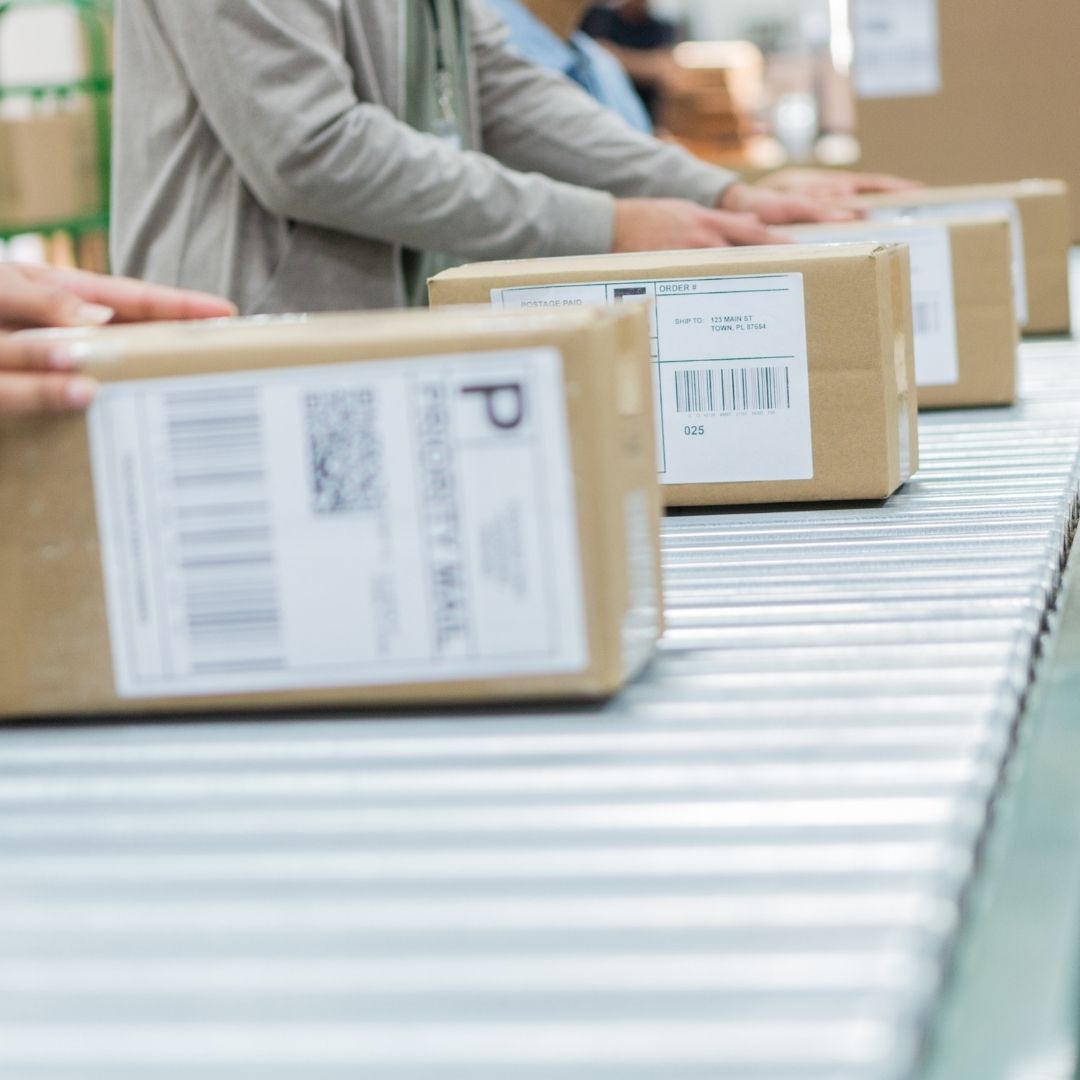
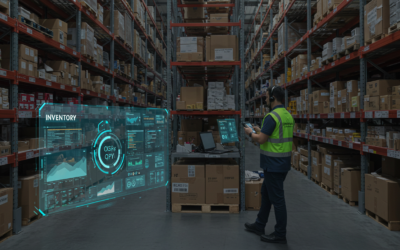

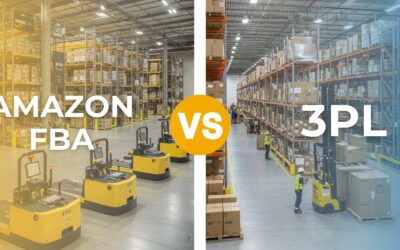
0 Comments